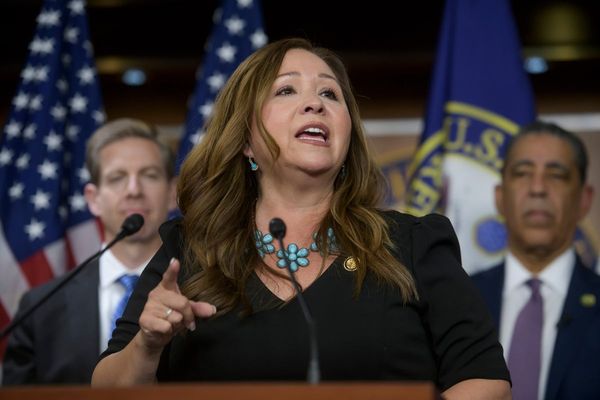
From Lagos to Boston, and now to a leadership role in U.S. healthcare strategy, Abdulraheem Olaide Babarinde’s career has crossed borders and broken barriers guided by a single purpose: to build more innovative, fairer health systems.
That mission began in the crowded wards of Lagos, where he often delivered care under extreme conditions.
In one defining moment, he found himself stitching a patient by flashlight, an act not of innovation, but necessity.
For Abdulraheem, that moment wasn’t just a memory; it was a turning point. One that would eventually carry him from frontline medicine in Nigeria to research labs in Boston, and into national-scale strategy at UnitedHealth Group’s Optum division.
Today, he works at the intersection of clinical insight, data science, and system reform. But his story begins where healthcare often breaks down, where the stakes are blood, time, and human life, and where the need for global solutions is most urgent.
Seeing Systems Fail Up Close
Trained at the University of Lagos, Abdulraheem began his career in Nigeria’s public health system, where every shift was a negotiation between need and scarcity. Surgical wards were packed. Resources were rationed. And despite the odds, care had to be delivered.
At the time, healthcare delivery often resembled guesswork operating under the appearance of a structured process.
He didn’t just see gaps, he lived inside them. And it became clear that solving real problems would require more than clinical skills. It would take systems thinking, a global perspective, and a new kind of leadership.
From Frontline Frustration to Health Tech Impact
That clarity shaped his next step: joining Reliance HMO, one of Nigeria’s fastest-growing health tech startups. As Head of Provider Relations, he didn’t just manage partners; he helped build one of the country’s largest provider networks from scratch.
He developed emergency care protocols that reduced wait times, particularly for critical injuries like gunshot wounds. He led a cross-functional provider relations team that played a pivotal role in securing Reliance HMO’s $40 million Series B fundraise. And he navigated a complex regulatory environment that demanded legal fluency and operational precision.
These frontline innovations proved change was possible, but also exposed the limitations of working within systems that lacked robust data infrastructure. To scale his impact, Abdulraheem knew he needed new tools.
A New Toolkit in Boston
Still, there were limits to what he could do without deeper technical skills. That search for tools, not titles, brought him to the Heller School at Brandeis University, where he earned a Master’s in Global Health Policy and Management, specializing in health econometrics and analytics.
At Brandeis, he mastered R, Python, SQL, SAS, and built models that explored the intersections of AI, public health, and pharmacogenomics. But he didn’t leave his frontline mindset behind; he brought it into the research.
His published work has since been cited over 400 times and includes:
- Comparative insights on AI in African and U.S. healthcare
- Reviews on pharmacogenomics and personalized medicine
- Strategic frameworks for data analytics in public health
“In God we trust. All others must bring data.” - A quote he keeps close, from W. Edwards Deming.
His research shaped his understanding of systemic reform and opened doors into the kind of policy-driven, high-impact work he now leads in the U.S.
Driving Change at Optum
Today, Abdulraheem is part of the engine behind one of America’s most complex healthcare programs: Medicare Advantage. At UnitedHealth Group’s Optum, he ensures that clinical documentation, coding, and compliance all align not just with policy, but with patients.
He conducts risk adjustment chart reviews, leads HCC coding assessments, and bridges the language between doctors, coders, and policymakers.
In 2024, he earned the UnitedHealth Group (UHG) Bravo! Award, recognizing his cross-functional collaboration and impact. He also became a Certified Risk Adjustment Coder (CRC) through the American Association of Professional Coders (AAPC). This credential enhances his expertise in Medicare risk scoring, regulatory compliance, and health equity.
For Babarinde, coding isn't just a technical exercise; it’s a means of ensuring that the sickest patients are accurately identified, documented, and ultimately, better supported across the care continuum.
Global Credentials, Local Focus

A vast network of affiliations backs Abdulraheem’s global perspective:
- Nigerian Medical Association (NMA)
- AcademyHealth
- American Association of Professional Coders (AAPC)
- American Board of Quality Assurance and Utilization Review Physicians (ABQAURP)
- Royal Society for Public Health (UK)
These aren’t just resume lines, they’re anchor points. Each one reflects his commitment to standards that travel across borders, to learning that never stops, and to care that adapts to context.
What Comes Next: A Smarter EMR for Everyone
While his current work focuses on Medicare, his sights are set on a challenge closer to home and closer to his heart: rebuilding electronic medical records (EMRs) for underserved regions.
He’s developing a mobile-first, low-bandwidth EMR platform, designed for the realities of emerging markets. The system supports HL7/FHIR compliance, integrates clinical workflows, and meets both international (HIPAA, GDPR) and local (NDPR) privacy regulations.
This isn’t an academic exercise. It’s the result of lived experience, knowing what happens when paper records go missing, when systems fail under stress, and when a five-minute delay changes a life.
U.S. healthcare systems can’t simply be transplanted into contexts like Lagos without adaptation; without adaptation, they’re likely to fail. Effective solutions require rethinking everything from bandwidth and infrastructure to cultural and regulatory alignment, always with intentionality and care.
He’s also planning to pursue graduate education in computer science, bringing even more depth to his technical leadership and moving closer to a future where health systems are smarter, fairer, and more human-centered.
Closing the Loop Between Clinic and Code

What makes Abdulraheem Olaide Babarinde’s journey compelling isn’t just the credentials or citations; it’s the clarity of purpose behind them. From the wards of Lagos to the strategic corridors of U.S. healthcare, his work reflects a rare blend of clinical insight, policy fluency, and technical leadership.
Whether advancing Medicare compliance in the United States or developing EMR tools for underserved regions, Babarinde is part of a growing movement redefining what global healthcare leadership looks like: grounded in experience, powered by data, and committed to equity at every level.
With a rare ability to navigate clinical, technical, and policy domains, Babarinde bridges conversations between doctors, coders, and decision-makers working toward a single, consistent goal: making healthcare work for everyone, everywhere.







